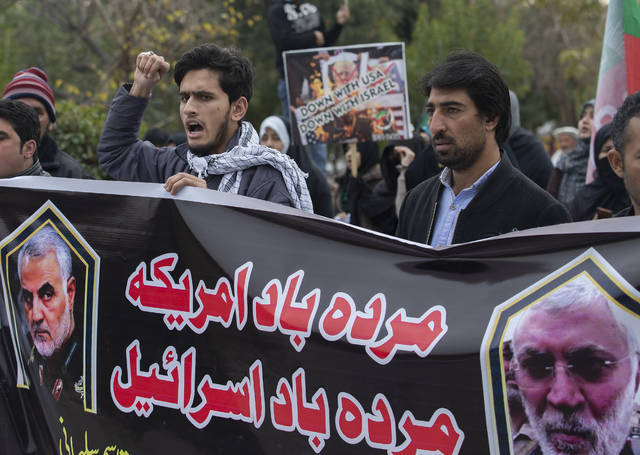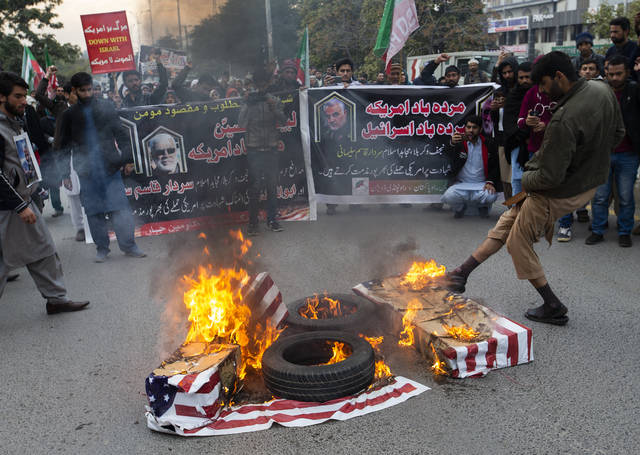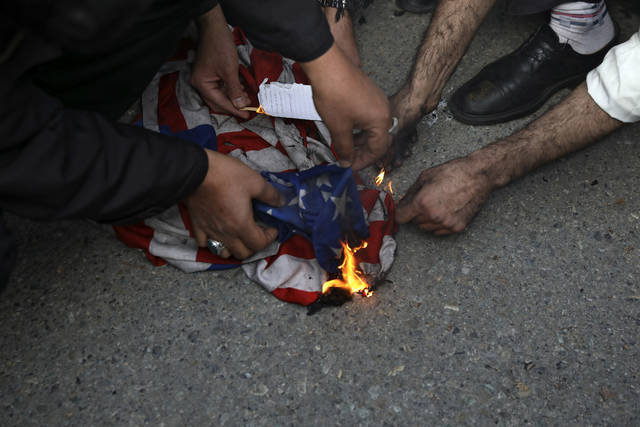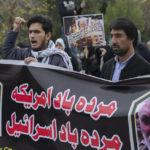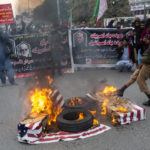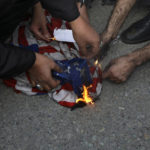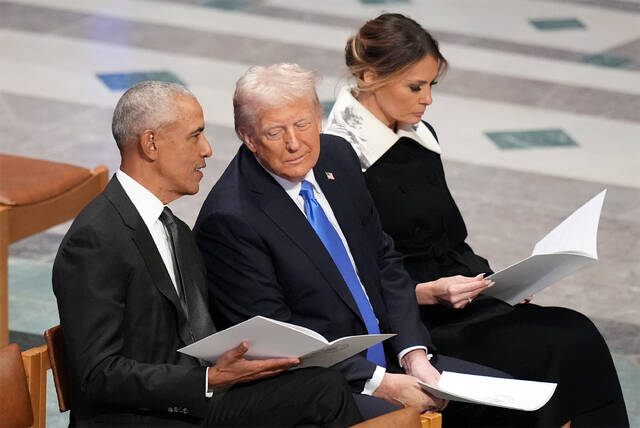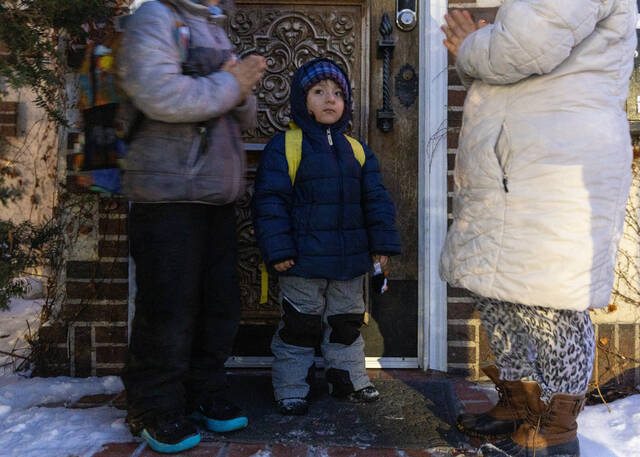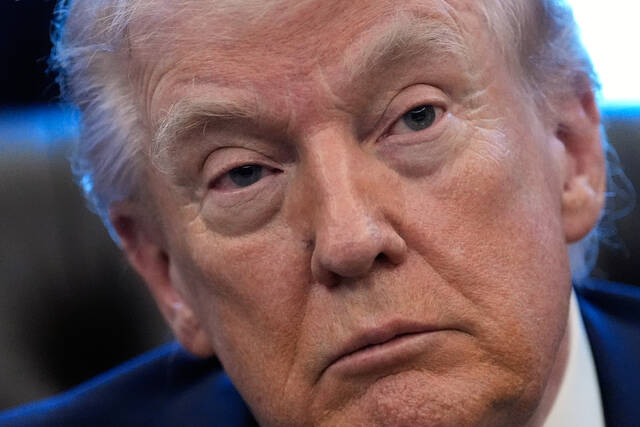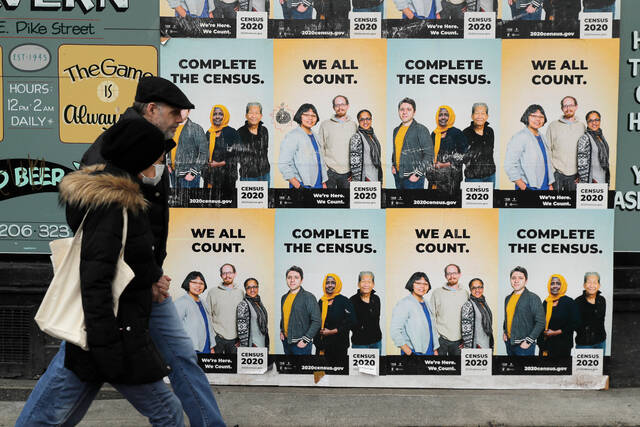Global powers are warning that the world has become a more dangerous place after President Donald Trump ordered the targeted killing of Iran’s top general and are urging restraint on all sides.
China, Russia and France, all permanent members of the U.N. Security Council, took a dim view of the U.S. airstrike near Baghdad’s airport early Friday that killed Gen. Qassem Soleimani.
“We are waking up in a more dangerous world. Military escalation is always dangerous,” France’s deputy minister for foreign affairs, Amelie de Montchalin, said on RTL radio. “When such actions, such operations, take place, we see that escalation is underway.”
Montchalin, the French minister, indicated that urgent reconciliation efforts are being launched behind the scenes. French President Emmanuel Macron and his foreign minister were reaching out to “all the actors in the region,” she said.
Russia’s Foreign Ministry, via an unnamed diplomat quoted by the state-run TASS news agency, condemned the killing as “an adventurist step that would lead to growing tensions throughout the entire region.”
China described itself as “highly concerned.”
“Peace in the Middle East and the Gulf region should be preserved,” Chinese Foreign Ministry spokesman Geng Shuang said. “We urge all parties concerned, especially the United States, to maintain calm and restraint and avoid further escalation of tensions.”
A European Union top official is urging all parties involved to avoid further escalation “at all cost.” Charles Michel, the president of the European Council, said the risk of the recent cycle of violence in Iraq “is a generalized flare-up of violence in the whole region.”
The minister of state for foreign affairs in the United Arab Emirates, which sits across the Persian Gulf from Iran, called for rational engagement and a “calm approach, free of emotion.” Anwar Gargash in a tweet added that the issues facing the region are in part due to a “lack of confidence” among the various stakeholders.
And Iraq’s President Barham Salih urged Iraqis to remain united to spare the country more violence after decades of bloodshed.
Germany’s defense ministry says its soldiers who help train local forces in Iraq have been ordered not to leave their bases.
Germany currently has 130 soldiers in Iraq. Defense ministry spokeswoman Christina Routsi said the troops “will have a restriction … no movement outside military facilities in Taji and Baghdad.”
Routsi said the training of Iraqi troops will continue.
Germany has a long-standing warning against travel to most of Iraq. On Friday it said the situation in the Middle East has reached “a dangerous escalation point” with the killing of elite Quds Force chief Gen. Qassem Soleimani and vows of retaliation from Iran.
The British government is urging caution and says “further conflict is in none of our interests.”
Foreign Secretary Dominic Raab says that “we have always recognized the aggressive threat posed by the Iranian Quds force led by Qasem Soleimani.” The statement does not explicitly endorse or condemn the actions of the United States, a major ally. Britain has traditionally supported U.S. actions in the Middle East.
Meanwhile, U.S. embassies in the region are warning citizens to be aware of their surroundings. The U.S. Embassy in Kuwait says it will increase its security “out of an abundance of caution” but adds it is “not aware of specific, credible threats” against it.
In the wake of the attack, oil prices have surged and most major global stock markets declined Friday.
London, Frankfurt and Paris opened lower, while Hong Kong also declined. Shanghai was little-changed and Japanese markets were closed.
Washington blames Iran for attacks on tankers and a September assault on Saudi Arabia’s oil industry that temporarily cut its production by half.
Brent crude, used to price international oils, was $2.10 higher at $68.36 per barrel in London after being up nearly $3 at one point.
Benchmark U.S. crude climbed $1.79 to $62.97 per barrel in electronic trading on the New York Mercantile Exchange.


